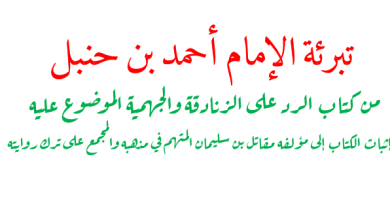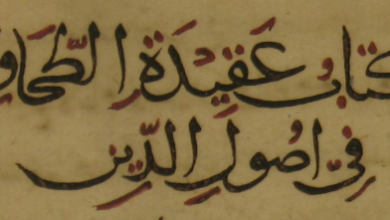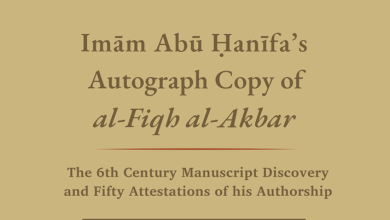Tafwid of the Attributes of Allah according to Imam Mujirud-Din al-Hanbali (d. 927 AH)
Imam Mujir ad-Din al Ulaymi al Hanbali (d. 927H) comes from a notable family of Hanbali scholars as well as a descendant of Amirul Mu’mineen Umar bin al-Khattab (rad). Born in Ramla, the capital of Palestine in those days, he later moved to Bayt al Maqdis (Jerusalem) where he served as the Chief Hanbali Qadi.
Below quoted are few of his interpretations of the Quran from his tafsir work فتح الرحمن في تفسير القرآن , from which it will be clear to see the methodology of tafwid that he adopts with regards to that which is attributed to Allah, and its difference with modern day pseudo-Salafi sects or the Tayymiyun.
On Istawa
In commentary to the verse {ثُمَّ اسْتَوَى عَلَى الْعَرْشِ} [Q 7:54], he explains,
http://shamela.ws/browse.php/book-14404/page-3835#page-1089
Rough translation:
” (ثُمَّ اسْتَوَى عَلَى الْعَرْشِ) Istawa that befits His Majesty without Howness, and in this intricacy/ambiguity it is necessary with Ahlus Sunnah for the people to have Iman in it, and relegate knowledge of it to Allah. Imam Malik said when asked about Istawa: “Istawa is known, meaning: in the language, and Howness in unknown, faith in it is obligatory, and questioning about this is an innovation. And Imam Ahmed said about the saying of Allah {الرَّحْمَنُ عَلَى الْعَرْشِ اسْتَوَى} [طه: 5]: “As He informed, (and) not what crosses the mind of humans”. And the (meaning of ) Arsh (throne) in the language: It is bed/couch, and the Arsh has been singled out in mentioning as a honor to Himself, because it the greatest of creation.”
and it gets even more clear, in commentary to the verse {الرَّحْمَنُ عَلَى الْعَرْشِ اسْتَوَى}[Q 20:5],
وسئل الإمام أحمد بن حنبل رضي الله عنه عن قوله: {الرَّحْمَنُ عَلَى الْعَرْشِ اسْتَوَى} فقال: “هو كما أخبر، لا كما يخطر للبشر”.
وتقدم الكلام على ذلك مستوفىً (2) في سورة الأعراف.
http://shamela.ws/browse.php/book-14404/page-1965#page-1965
“{عَلَى الْعَرْشِ اسْتَوَى} Istawa that befits His Majesty without Howness. This is from the Mutashabiha (unclear/ambiguous verses) of the Quran, we believe in it, (however) we are not exposed to its meaning”. After which he quotes the same above saying of Imam Malik and Imam Ahmed.
We see here how the methodology of Hanbali scholars with regards to such verses is no different to the Tafwid methodology that is adopted by Ashari & Maturidi schools. Also note how the saying of Imam Malik is interpreted in that when it said “its meaning is known” it means that the meaning is known in the language and not that the real meaning of the verse or when attributed to Allah is known. Rather, it is from the Mutashabiha verses.
On the verse {Do you feel secure (from) who (is) in the heaven}[Q 67:16]
http://shamela.ws/browse.php/book-14404/page-3489#page-3489
“This is from the ambiguous/unclear (mutashabih) whose knowledge is with Allah alone, We believe in it and we are not exposed to its meaning, and we relegate its knowledge to Allah. Ibn Abbas said: “Do you feel secure of the torment from in the sky…”
Here again, the verse is explicitly stated as from the mutashabih. Further more despite this tafwid the Imam also quotes a tawil from Ibn Abbas (rad.). That is, being on tafwid does not mean an absolute rejection of tawil and the scholars using tafwid had validated tawil when they found enough basis for it.
On the verse {Do they await but that Allah should come to them in covers of clouds} [Q 2:210]
http://shamela.ws/browse.php/book-14404/#page-358
“Firstly in this verse and what is similar is for people to have faith in it, and to pass it as it has come without howness, and relegate knowledge of it to Allah, and this is the madhab of the Imams of the Salaf and scholars of Sunnah. Sufyan al-Thawri said: All that which Allah attributed to Himself in His book, its tafsir is its recitation, and silence about it, for no one can explain that except Allah and His Messenger.”
We see knowledge of the verse is relegated to Allah and His Messenger. If these verses and its meaning was no different to any other verse in the Quran as the neo-Salafis claim, then there would be no need specifically relegate meaning to Allah in this verse only.
On the verse {And your Lord has come}[Q 89:22]
http://shamela.ws/browse.php/book-14404/#page-3736
{And your Lord has come} Imam Ahmed said: meaning: command of your lord has come.
On the verse {Rather, both His hands are extended}[Q 5:64]
http://shamela.ws/browse.php/book-14404/page-879#page-879
“{Rather, both His hands are extended} It does not mean in reality (Allah has) a limb superimposed because Allah is far above from being a composition. It is an attribute from the Attribute of His Self (Dhat), like His Hearing and Seeing. Allah said “Whom we created with both hands”[Q 38:75] and the Prophet said “both His hands are right”. And Allah knows best His attributes, what is required of (us) slaves is belief and acceptance, and to pass it as it has come without Howness”
On the verse {the heavens will be folded in His right hand}[Q 39:67]
http://shamela.ws/browse.php/book-14404/page-2895
“{in His Grip} that is: in His disposition, …….{on the Day of the Resurrection and the heavens will be folded in His Right Hand} that is: collected with His Power.”
On the verse {the hand of Allah is over their hands}[Q 48:10]
http://shamela.ws/browse.php/book-14404/page-3145
“{the hands of Allah is over their hands}: That is: His Might and His Power is above their might and their power, that is: in help and victory. This is the mentioning of blessing on them…”
On the verse {bounty is in the hand of Allah} [Q 57:29]
http://shamela.ws/browse.php/book-14404/#page-3356
“{and that the bounty is in the hand of Allah} in His disposal and His possession”
On the verse {Sailing under Our eyes} [Q 54:10]
http://shamela.ws/browse.php/book-14404/page-3270#page-3270
“{Sailing under Our eyes} That is: under our guarding and protection”
On the verse {The Day the shin will be uncovered}[Q 68:42]
http://shamela.ws/browse.php/book-14404/page-3509
“{The Day the shin will be uncovered} that is: command intensifies. Ibn Abbas said: It is the most intense hour in Resurrection. ….”
Allah is not a body
In commentary to the verse {Allah-us-Samad}[Q 112:2] he says:
http://shamela.ws/browse.php/book-14404/page-3835#page-3835
“The Most High is not a body nor a composite”







thanks for sharing us